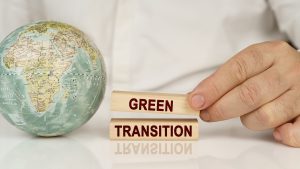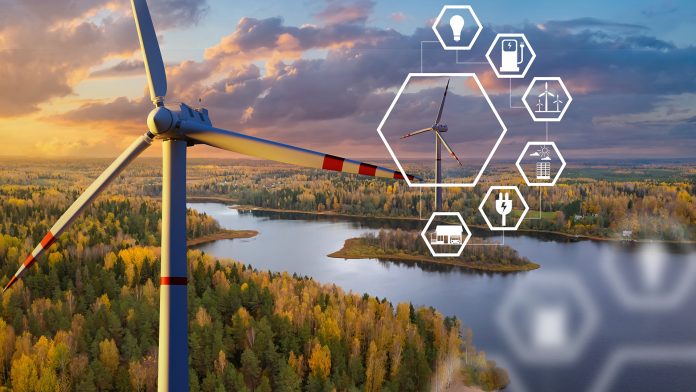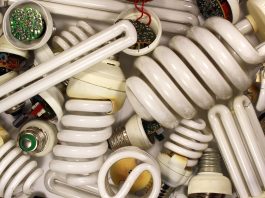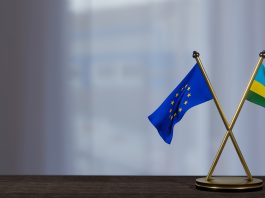EIT RawMaterials is collaborating with policymakers and industry to foster innovation, establish policies, and develop a clear roadmap that enables Europe’s critical materials industry to meet its sustainable goals.
As Europe races towards its 2050 climate neutrality target, a significant hurdle stands in its path: Access to the critical raw materials that power key green technologies, such as solar panels, wind turbines, and electric vehicles.
Currently, Europe is largely dependent on just a handful of countries for these essential materials and, as a result, is reliant on risk-exposed and often untransparent supply chains, which pose potential challenges to the region’s economic and regulatory objectives.
So EIT RawMaterials, the world’s leading innovation community in the raw materials sector, is on a mission to bolster Europe’s transition to a sustainable economy. Its focus is securing a sustainable supply of raw materials, promoting a circular economy by driving innovation, education, and entrepreneurship.
EIT RawMaterials also manages the European Raw Materials Alliance (ERMA), a network of over 750 European and international partners whose mission is to ensure the sustainable competitiveness of the European raw materials sector along the entire value chain.
Strengthening Europe’s competitive edge: ERMA’s action plans
ERMA has an important role to play in securing financing to help boost Europe’s competitiveness in the international supply chain.
Alongside encouraging investment in the sector and rigorously evaluating raw materials business proposals before presenting them to potential investors, it conducts studies, makes policy suggestions for the sector, and cooperates closely with the EU to secure international partnerships.
Since its formation in 2020, ERMA has released two Action Plans tailored to specific market needs in collaboration with industry partners.
First was the “Rare Earth Magnets and Motors Action Plan: A European Call for Action” from 2021, which studied European demand for rare earth elements and recommended actions needed to secure their supply.
The action plan has already resulted in de-risked projects, estimated to supply around 20% of Europe’s permanent magnets needs by 2030 compared to nearly 0% today.
ERMA’s most recent action plan – The European Call for Action on Energy Storage and Conversion – was launched in May 2023 and seeks to strengthen Europe’s position in the energy storage and conversion sector.
As green technologies gain wider adoption, the significance of energy storage and conversion is becoming increasingly important due to the intermittent nature of energy sources like wind and solar power. However, ensuring a consistent energy supply demands robust storage and conversion systems, which, in turn, need substantial quantities of raw materials.
The roadmap aims to quantify the enormous investments needed to secure the supply of these raw materials, and it focuses on four primary areas:
- Materials in solar energy;
- Battery materials;
- Fuel cells and electrolysers; and
- Alternative energy storage and conversion.
The specific recommendations outlined in the roadmap for each of the four strategic areas include key actions to promote societal support for mining projects, securing raw material supply by opening new mines, increasing recycling capacity, diversifying raw material supply through diplomacy, enhancing transparency and sustainability in solar supply chains, developing a skilled workforce, and implementing digital tools to monitor material flows using Industry 4.0 technologies.
Crucially, it offers a comprehensive strategy covering the entire mineral value chain, from exploration to processing, and identifies investment opportunities exceeding €20bn, potentially elevating the EU’s self-reliance on critical materials by 2030.

Support from EU policy
The roadmap goes beyond outlining measures to secure raw materials supply into strategies for making the European raw materials sector more competitive.
For example, it points out that the EU could enhance competitiveness in battery materials production by harmonising standards to showcase sustainability as a unique selling point, and by adopting fit-for-purpose mining standards linked to the Sustainable Development Goals.
It also suggests that a smart mix of trade measures would help establish a level playing field and increase the likelihood of attracting investment cases for Europe.
According to the paper, the European Commission and Member States could align import duties, establish clear requirements for battery second life, including recycling and traceability measures, and implement strict control and monitoring of end-of-life batteries and exports for recycling.
Environmental responsibility: Reducing the impact of mining
One of the more controversial action areas identified in the Roadmap is the need to expand mining operations within Europe whilst maintaining strict ESG standards.
To support this, the proposal advocates for the creation of a European Raw Materials Fund, that can offer support across all project phases, with funding derived from a combination of EU and Member State policies.
In terms of European-wide policy initiatives, the roadmap emphasises the need to integrate mining, refining, and recycling activities into the Sustainable Finance Taxonomy, aligning them with the climate goals outlined in the European Green Deal and establishing common sustainability criteria for mining operations.
Innovative technologies to enhance mining and processing capabilities
Innovation is key to reshaping the mining industry’s image from an antiquated, polluting sector to a modern and environmentally conscious one, and EIT RawMaterials is at the forefront of driving this transformation.
Many of EIT RawMaterials’ partners are actively developing new safety and technological solutions aimed at enhancing mining conditions. One such partner, Worldsensing, from Spain, has successfully created a risk management system that reduces the environmental impact of existing mining processes and mitigates operational risks associated with Tailings Storage Facilities.
In the field of mining waste utilisation, two significant projects, SCALE-UP and VALORE, have made substantial progress. Currently, they are in the process of scaling up the utilisation of more than 700,000 tons of bauxite processing residues annually. These efforts include extracting valuable metals such as Scandium and Vanadium from these residues.
EIT RawMaterials collaborates with leading industry players in northern Europe, like Epiroc, Sandvik, Metso, and Outotec, to enhance the use of advanced mining equipment and processing plants. They also work with firms like Keliber, the Finnish Minerals Group (FMG), and Umicore with the goal of creating a sustainable EV battery supply chain in Europe, using advanced technologies for responsible resource management.
In Africa, they have organised three open innovation challenges in collaboration with ERAMET over the past three years, focusing on Responsible Mining, Worker Safety, and Water Resources Management.
In the ‘Safety First’ challenge of 2022, a solution was developed that utilises AI and data processing to automate asset maintenance and detect anomalies, reducing railway incidents.
The Eramet Responsible Mining Innovation Challenge was won by the startup Bind-X, which introduced an innovative solution to improve dust emission control at the Group’s mining sites by replacing the traditional use of water. During the trial of this innovative method at a mine in Senegal, they managed to reduce water usage by 85% and cut CO2 emissions by 94%.
Improving resource efficiency and circularity
With the recent approval of the Critical Raw Materials Act, Europe has set an ambitious target of sourcing at least 25% of the EU’s annual raw materials consumption through domestic recycling.
EIT RawMaterials aims to enhance resource efficiency and advance circularity through a range of projects and initiatives.
Notable initiatives include the ReLieVe project, which has delivered a closed-loop industrial process for recycling Li-ion batteries from electric vehicles, and the Charamba project, which uses artificial intelligence-powered technology to streamline the handling of complex waste streams.
EIT RawMaterials also addresses specific challenges related to critical raw materials such as Vanadium and Gallium, which are vital – amongst other things – for semiconductor manufacturing. To reduce dependency on imports, the VALORE project aims to recover Vanadium and Gallium as by-products from an aluminium refinery.
In the field of battery technology, EIT RawMaterials supports innovations like E-Magy, which produces nano-porous micron-sized silicon material for batteries. This material increases battery energy density by 40%, extending the driving range and enabling faster charging for electric vehicles.
Nurturing skills for future challenges
Supporting education is crucial for fortifying the raw materials sector as it addresses technological and innovation needs while also nurturing essential skills. This is particularly important as projections indicate that by 2030, the raw materials sector will need 1.2 million skilled professionals.
Education is a cornerstone for EIT RawMaterials, which collaborates with over 300 universities and offering Master’s and PhD programmes to train future industry leaders. They have expanded raw materials education to schools and led projects like the Deep Tech Talent Initiative, with the ambitious goal of training one million students by 2025.
They also provide education courses for current industry professionals, covering topics such as Circular Economy and Social Licence to Operate.
They also tackle gender imbalances in STEM fields through initiatives like the GirlsGoCircular programme, aiming to engage more young women in geosciences and related disciplines.
Promoting international cooperation
As the examples of innovation development projects in Africa demonstrate, EIT RawMaterials is also very active in promoting international cooperation within the raw materials sector.
EIT RawMaterials has a strong presence across Europe through 14 Innovation Hubs, which are strategically positioned in regional areas to drive innovation, education, and entrepreneurship within the raw materials sector.
In 2024, EIT RawMaterials opened its newest Regional Innovation Centre in Albania, which will serve as a hub for stakeholders in Albania’s raw materials sector and aims to forge partnerships between EIT RawMaterials and the Albanian innovation ecosystem, as well as the wider Balkan region.
EIT RawMaterials also collaborates with the European Commission to strengthen relationships with governments and markets such as Ukraine, Greenland, Africa, Australia, Kazakhstan, Latin America, and Canada. Attracting international companies and fostering cooperative relationships is essential to their mission.
Raw Materials Summit 2024
14 May – 16 May 2024
Presented by EIT RawMaterials, the Raw Materials Summit is one of the most important events for the sector globally and is expected to attract more than 1,000 participants.
The timing and location of the event are momentous. Taking place in Brussels, the summit will be officially labelled under the auspices of the Belgian Presidency of the Council of European Union and held just a few weeks before the European Parliament elections.
Register here www.eitrmsummit.com
Please note, this article will also appear in the seventeenth edition of our quarterly publication.









